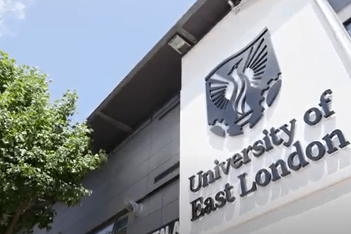Call for Papers
Background
Intelligent systems and automation are revolutionising industries by integrating Artificial Intelligence (AI) models, Machine Learning (ML), the Internet of Things (IoT), and Robotic Algorithms. AI-driven automation enhances decision-making, efficiency, and adaptability across diverse applications, from smart manufacturing to autonomous robotics. Machine learning enables intelligent systems to process vast datasets, optimise operations, and improve real-time responses. The IoT connects devices, generating valuable data for prediction, smart environments, and seamless automation. Robotic algorithms support autonomous navigation, precision control, and adaptive behaviour in robotics for enhancing performance in fields such as healthcare and industrial automation. Supported by leading higher education institutions, including the University of East London, Edge Hill University, and Sebha University, the ISA 2025 symposium explores the advancements in intelligent systems by focusing on how AI models, IoT, and robotics intersect to drive automation and innovation. Participants gain insights into emerging trends, challenges, and future directions in this evolving research area.
Goal/Rationale
The demand for intelligent systems and automation has surged, driven by the convergence of AI models, machine learning, the IoT, and Robotic Algorithms. However, integrating these technologies remains a complex challenge, requiring innovative solutions for seamless communication, real-time decision-making, and autonomous adaptability. A key problem is ensuring that AI-driven automation operates efficiently in dynamic, uncertain environments while maintaining reliability, security, and ethical compliance. Recent advances in deep learning, edge AI, and swarm robotics have significantly improved automation capabilities. AI models are becoming more sophisticated in processing vast, real-time IoT-generated data, which enables predictive analytics, smart infrastructure, and autonomous robotic systems. Enhanced robotic algorithms now support improved navigation, human-robot collaboration, and self-learning mechanisms, optimising industrial and service applications. The ISA 2025 hybrid symposium aims to explore cutting-edge research and practical solutions to bridge gaps in the areas of AI, IoT, and robotics. It will bring together experts, researchers, and practitioners to discuss strategies for overcoming current limitations to ensure scalability and utilising automation for intelligent decision-making. Participants will gain valuable insights into emerging trends and future opportunities, which promote interdisciplinary collaboration in this evolving research field.
Scope and Information for Participants
This hybrid symposium focuses on the utilisation of AI models, machine learning, the IoT, and Robotic Algorithms to advance intelligent systems and automation. It will explore recent innovations, challenges, and future research directions in these domains by addressing both theoretical and practical aspects. Participants are invited to contribute research and insights on the following key themes:
- AI-Driven Automation: This focuses on enhancing decision-making, optimisation, and adaptability in dynamic environments.
- Machine Learning for Intelligent Systems This utilises ML for the applications of deep learning, reinforcement learning, and edge AI toward smarter intelligent systems.
- IoT-Enabled Smart Systems: Improving smart systems through Data-driven automation, predictive analytics, and real-time decision-making.
- Robotic Algorithms and Autonomous Systems: Advances in navigation, control, and human-robot interaction using robotics algorithm for the next-generation smart robotic systems (SRS).
- Security, Ethics, and Scalability in Automation: Develop automation by addressing risks, reliability, and sustainable AI-driven systems using security, ethics, and scalability.

